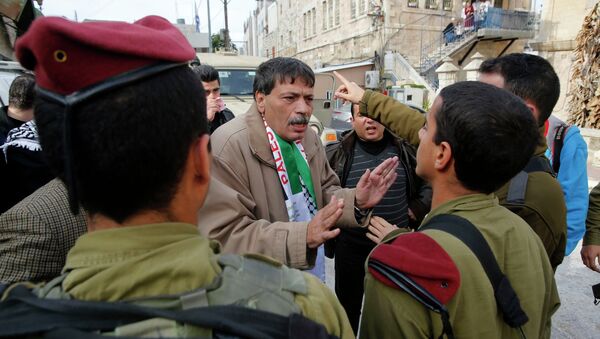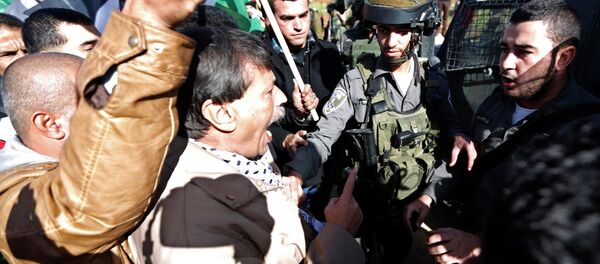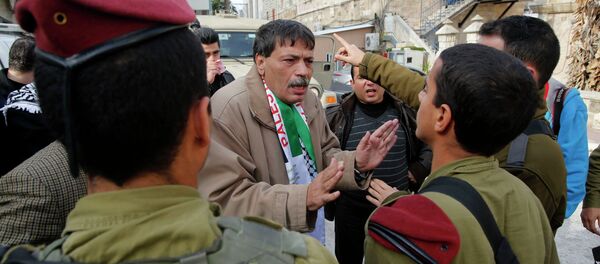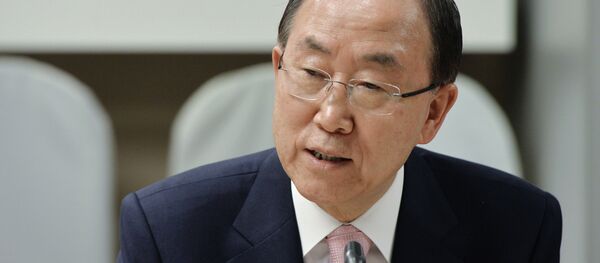"Israel's health ministry said Thursday that a prominent Palestinian cabinet member died from a heart blockage during a confrontation with Israeli forces in the West Bank, challenging claims that the death was caused by a blow from soldiers," the Washington Post reported.
The media outlet notes that an autopsy, carried out on Wednesday, indicated that the Palestinian minister had been suffering from "blockage of the coronary artery," while the bleeding could be apparently caused by the stress, the official statement, released by Israeli, Palestinian and Jordanian pathologists stated.
During the violent clashes between Palestinian demonstrators and Israeli border forces Abu Ein was reportedly struck on the chest and on the neck by Jewish police officers. An Agence France Press photographer on the scene said the Palestinian leader was grabbed by three Israeli policemen and beaten.
In an interview with the Associated Press, the Palestinian doctor who conducted the autopsy along with his Jordanian and Israeli counterparts stressed that the death of the Palestinian Minister was caused by "a blow to his body, not of natural causes."
On the other hand, Israel Today magazine argues that it was Palestinian protesters who prevented an Israeli medic from assisting the Palestinian official, dying from a heart attack. Citing Tom Rayner of Sky News, the media outlet points out "that a female Israeli medic attempted to clear the area and administer aid to Abu Ein," while "the Palestinian mob was having none of it, and quickly moved the dying man to a nearby vehicle."
According to the media source, it was a fatal mistake.
"We know that he died from a heart attack. He had significant blockage of the arteries and his heart was in bad shape. When they grabbed his neck it caused massive stress which led to bleeding and then full blockage, which is what killed him," Dr. Hen Kugel, who was present at Abu Ein's autopsy said, as cited by Israel's Ynet news portal, adding that the arteries of the Palestinian leader were 80-percent blocked.
The Washington Post points out that any disagreement over the cause of Abu Ein's death may ignite further tensions between Israelis and Palestinians. The tragic incident has added fuel to the flame, sparked by Palestinian terrorist attacks, 50-day war in Gaza and recent turmoil over Al-Aqsa mosque in Jerusalem.
In response, Palestinian Authority Mahmoud Abbas has accused Jerusalem for the death of Ziad Abu Ein and declared three days of mourning, suspending any security coordination with Israel.
In his turn, Israel's President Reuven Rivlin said that the state "is committed to carry out a careful examination into the events which led up to Abu Ein's death. At this difficult time, both sides have the duty to be responsible and encourage calm," he said as quoted by the Washington Post.





